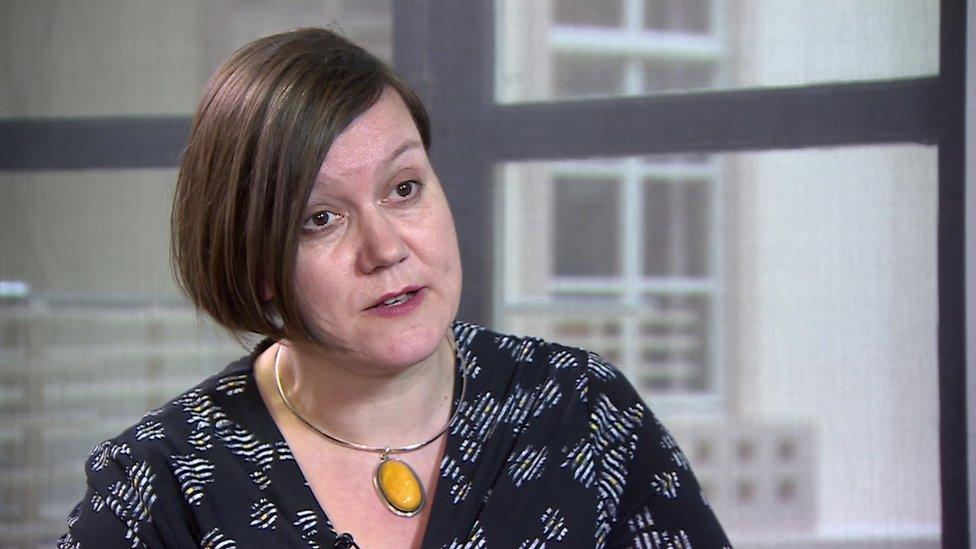Cash cuts 'threaten school standards', say MPs
- Published
- comments

Schools have warned about funding shortages
The biggest school funding shortages in England since the 1990s are threatening to damage standards, says a report from MPs overseeing public spending.
The cross-party Public Accounts Committee criticises "delusions" in government over the budget situation.
Head teachers said the Department for Education had "buried its head in the sand" over the extent of financial problems.
The Department for Education says funding is at record levels.
But the report from the Public Accounts Committee says "funding per pupil is reducing in real terms" and will mean schools cutting spending by £3bn by 2019-20.
'Whitehall plans'
The highly critical report says the Department for Education must not be "deaf to the experiences of head teachers" who have been complaining of cuts to staff and services.
"Grand plans drawn up in Whitehall are dangerous if they are implemented without regard to real-world consequences, and we will expect to see measures to address our concerns as a matter of urgency," says Meg Hillier, who chairs the committee.

Meg Hillier says funding plans need to recognise "real-world consequences"
The report warns of a "collective delusion" that spending cuts could be achieved through efficiency savings - and raises concerns that the Department for Education does not seem to have a plan to monitor the impact.
Such financial pressures are "likely to increase teachers' workload, with implications for recruitment and retention, and put at risk the quality of education", says the report.
The MPs say that the Department for Education has failed to recognise the cost pressures on schools.
"Pupils' futures are at risk if the Department for Education fails to act on the warnings in our report," said Ms Hillier.
"Government must take all necessary steps to ensure it can intervene quickly if action taken by schools to meet efficiency targets risks damaging standards."
School leaders have been protesting against funding cuts - with head teachers from 3,000 schools across England sending a joint letter last week calling for a re-think on budget plans.
A consultation on funding changes ended last week - and the Department for Education has not set out a timetable for when it will respond.
But the ASCL head teachers' union said the Department for Education "does not seem to understand the pressures that schools are already under".
"The fact is that reduced budgets mean fewer staff and this in turn means larger class sizes, reduced GCSE options, and cutbacks in support services and enrichment activities," said the ASCL's leader, Malcolm Trobe.
Jo Yurky from a parents' campaign group, Fair Funding for All Schools, said it was "wishful thinking from our ministers to suggest that you can force schools to find £3bn cuts without harming our children's education. The government's position has now become untenable".
Kevin Courtney, leader of the National Union of Teachers, described the report as "another nail in the coffin of the government's school funding policy".
Labour's shadow education spokeswoman Angela Rayner accused ministers of not "having a clue what is going on in our schools".
"The government's handling of the schools budget is nothing short of a scandal."
The Liberal Democrats' education spokesman, John Pugh, said: "Tory ministers must be the only people left who haven't spotted the crisis in schools funding - or worse, they're choosing to ignore it."
A Department for Education spokeswoman said: "We have protected the core schools budget in real terms since 2010, with school funding at its highest level on record at more than £40bn in 2016-17 - and that is set to rise, as pupil numbers rise over the next two years, to £42bn by 2019-20.
"We recognise that schools are facing cost pressures, and we will continue to provide support to help them use their funding in the most cost-effective ways, so that every pound of the investment we make in education has the greatest impact."
- Published21 March 2017

- Published13 March 2017

- Published17 February 2017